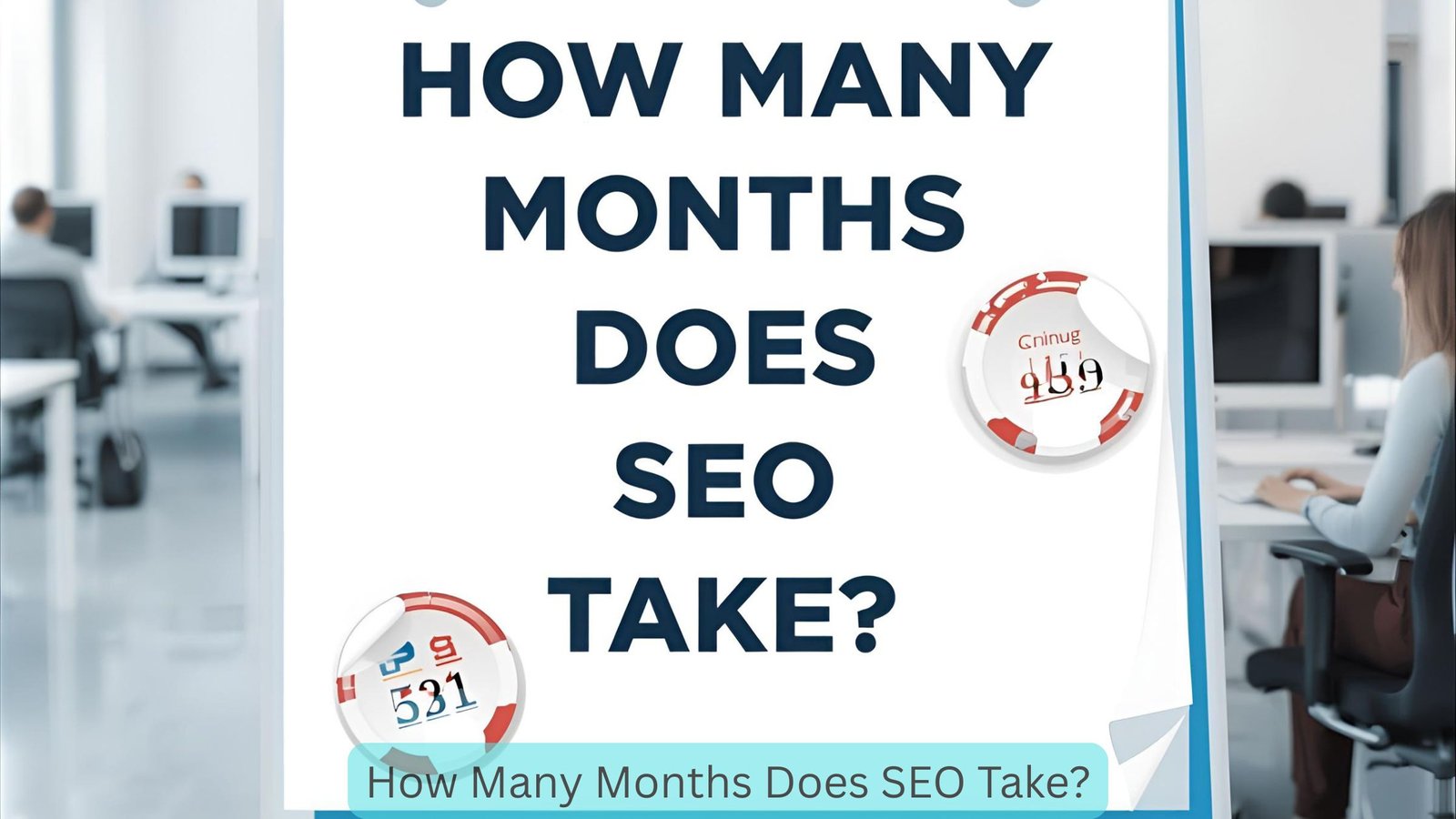How Many Months Does SEO Take?
 When you start optimizing your site for search engines, you might wonder how long it’ll take to see results. Generally, SEO takes about three to six months to show noticeable changes. This gradual process involves various elements like content quality and backlinks. But what exactly influences this timeline? Understanding these factors can help you set realistic expectations and navigate the journey ahead.
When you start optimizing your site for search engines, you might wonder how long it’ll take to see results. Generally, SEO takes about three to six months to show noticeable changes. This gradual process involves various elements like content quality and backlinks. But what exactly influences this timeline? Understanding these factors can help you set realistic expectations and navigate the journey ahead.
Understanding SEO Timelines
When you dive into SEO, it’s crucial to understand that results don’t happen overnight. You won't see immediate changes; instead, you’ll likely notice gradual improvements over time.
Typically, it can take anywhere from three to six months to start seeing significant results. During this period, you're working on optimizing your site, creating quality content, and building backlinks. Each of these elements plays a role in how quickly you’ll notice changes in your search rankings.
Patience is essential, so don’t get discouraged if you don’t see instant success. Keep monitoring your progress and adjusting your strategies as needed. This long-term approach will ultimately lead to sustainable growth and visibility in search engine results. For expert guidance along the way, consider insights from a trusted SEO advisor in India.
Factors That Influence SEO Results
Numerous factors can influence how quickly and effectively your SEO efforts pay off. One key factor is the quality of your content; high-quality, relevant content engages users and encourages backlinks.
Your website’s structure also matters; a clean, user-friendly design improves navigation and helps search engines index your pages efficiently. Technical SEO elements like site speed, mobile-friendliness, and secure connections contribute significantly to your rankings.
Additionally, your website’s authority, built through backlinks and social signals, plays a role in how quickly you see results. Regular updates and optimization keep your content fresh and relevant, which search engines favor.
Finally, your target keywords' relevance and competitiveness can impact how soon you notice significant changes in rankings.
Industry Competitiveness and Its Impact
The competitiveness of your industry significantly impacts how quickly you can achieve SEO results. If you're in a highly competitive market, you might find it takes longer to rank for valuable keywords. You'll face numerous established competitors, all vying for the same audience.
In contrast, if you're in a niche market with fewer players, you may see quicker results, as there's less competition for visibility.
To navigate this landscape, you’ll need to invest time in research and strategy. Identifying unique selling points and focusing on long-tail keywords can help you carve out your space.
The Current State of Your Website
Understanding the competitiveness of your industry sets the stage for evaluating your website's current state.
You'll want to assess your site's design, user experience, and content quality. Are your pages loading quickly? Is your navigation intuitive? A well-structured website enhances user engagement and encourages visitors to stay longer.
Next, take a close look at your content. Is it relevant, informative, and optimized for search engines? Identify any gaps that might exist compared to your competitors.
Additionally, review your current analytics data. What're your traffic sources, and how do users interact with your site?
SEO Strategies and Their Effectiveness
While many businesses recognize the importance of SEO, implementing effective strategies can make all the difference in achieving long-term success.
You need to focus on a combination of on-page and off-page techniques. Start with thorough keyword research to identify terms your audience uses. Optimize your website’s content, meta tags, and images to improve relevance.
Don't forget about mobile-friendliness and site speed; these factors significantly impact user experience and search rankings. Building high-quality backlinks can also enhance your credibility and authority.
Regularly analyzing your SEO performance helps you see what works and what doesn’t, allowing you to adjust your strategies. Ultimately, the right mix of tactics tailored to your business can lead to improved visibility and traffic over time. If you’re just starting out, here’s a guide on practicing SEO as a beginner.
Setting Realistic Expectations for SEO Progress
Setting realistic expectations for your SEO progress is crucial, especially since results don’t happen overnight. Most effective SEO strategies take time to show visible results, typically anywhere from three to six months.
It’s essential to understand that SEO isn’t a one-time effort; it requires ongoing work, including regular content updates and technical adjustments.
Track your metrics consistently, but don’t get discouraged by fluctuations. Factors like competition and search engine algorithm changes can affect your rankings.
Focus on long-term growth rather than instant success, and celebrate small wins along the way. By maintaining patience and adjusting your strategies as needed, you’ll build a solid foundation for sustained SEO success that pays off in the long run.
Conclusion
In conclusion, SEO isn't an overnight success; it usually takes three to six months to see real results. You need to be patient and understand that factors like your website's current state and industry competitiveness can impact your timeline. By focusing on effective strategies and continuously monitoring your progress, you'll set yourself up for sustainable growth. Remember, staying realistic about your expectations will help you stay motivated as you watch your search rankings improve over time.
